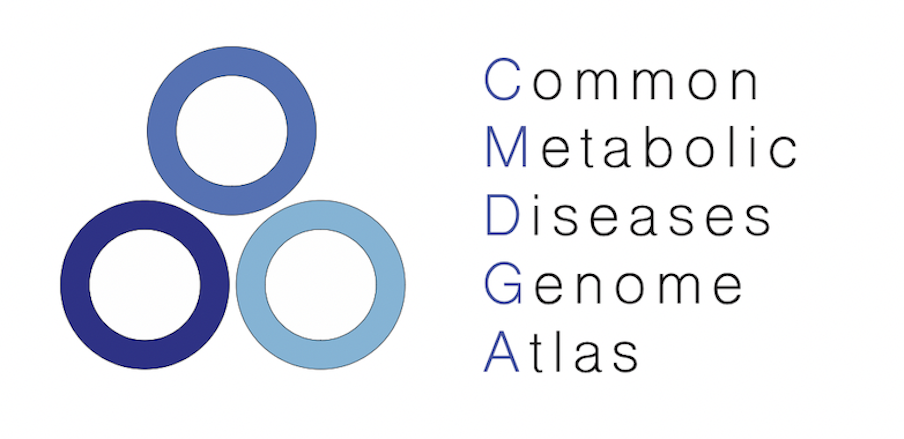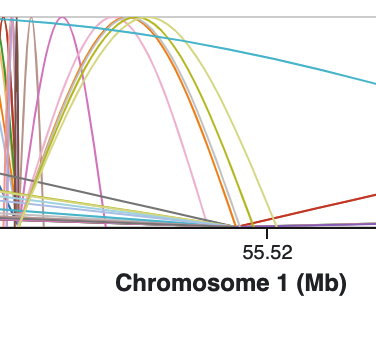|
kp4cd.org | Fall 2021
|
 |
 |
Contents |
New genetic association datasets in the Knowledge PortalsWith our October release we added genetic associations for multiple phenotypes, spanning diverse ancestries, to the Common Metabolic Diseases Knowledge Portal, its disease-specific component portals, and the Musculoskeletal Knowledge Portal (MSK-KP):
|
 DGA is now CMDGAIn keeping with the evolution of the Accelerating Medicines Partnership® Type 2 Diabetes into AMP® Common Metabolic Diseases, the Diabetes Epigenome Atlas has now become the Common Metabolic Diseases Genome Atlas (CMDGA; cmdga.org). It's much more than just a name change: CMDGA now incorporates epigenomic datasets relevant to many diseases beyond diabetes (see a list of recently added datasets). Several new data types have been added to CMDGA, including single cell embeddings, gene perturbations, statistical models, and pipelines. New tools are also available for exploring the data, including a Single Cell Browser and a Gene Expression Browser with dot plot and heat map views. |
 Target gene predictions now available in GEMGEM, the Genomic Region Miner tool available on Region pages of the Knowledge Portals, aligns genetic associations with epigenomic annotations to help researchers understand the regulatory potential of specific regions of the genome. A new type of epigenomic annotation is now available in GEM: target gene predictions, which make connections between regulatory regions and their target genes. The predictions, listed here in CMDGA, include those made using the ABC (Fulco, Nasser, et al. 2019); CHiCAGO (Miguel-Escalada et al. 2019), and Cicero (Chiou, Zeng, et al. 2021) methods. To see an example of their representation in GEM, go to the PCSK9 Region page and select "Liver" tissue in the GEM "Add tissue loop track" menu. |
 HuGeAMP platform will be extended to more disease areasOur team at the Broad Institute has received funding from the National Human Genome Research Institute (NHGRI) to create an Association to Function Knowledge Portal (A2FKP). This project will build upon the work we've done to create and refine the CMDKP and its disease-specific sub-portals. In the A2FKP project, we will work with additional disease research communities to aggregate and analyze information that will help researchers mine insights from genetic and genomic information across many new disease areas. |
 AMP-CMD® newsDid you know that the funding for AMP-CMD includes $500,000 annually for an Opportunity Pool (OP) to support research aligned with the consortium's goals? This funding opportunity is open to applicants both within and outside of the AMP-CMD consortium, and researchers who receive OP support become members of AMP-CMD. Review of proposals for years 1 and 2 of the award is now in progress, and the call for applications for the next round of funding will go out in early 2022. Watch the CMDKP home page for announcements! |
 Successful ancillary session held at ASHG 2021The Knowledge Portal Network organized a well-attended ancillary session at the 2021 American Society of Human Genetics meeting: "Genetic, epigenomic, and functional approaches to identifying effector genes for complex diseases". The talks, from Drs. Anna Gloyn, Brent Richards, Krishna Aragam, and Jason Flannick, described a variety of strategies for synthesizing genetic and genomic data to predict and verify the genes that are causal for complex diseases. If you missed it, you can catch the recording on YouTube! |
New informational resources
|
Upcoming webinarsWebinars (all at noon, US Eastern time; topics and connection info will be on our home page):
|
Stay in touch!Contact us with questions or suggestions; sign up for our mailing list; follow us on Twitter; join our LinkedIn group; or watch our videos on our HuGeAMP Knowledge Portals YouTube channel. |
Knowledge Portal Network Fall 2021 Newsletter
md, t1d, t2d, cd, cvd, sleep, msk, lung
